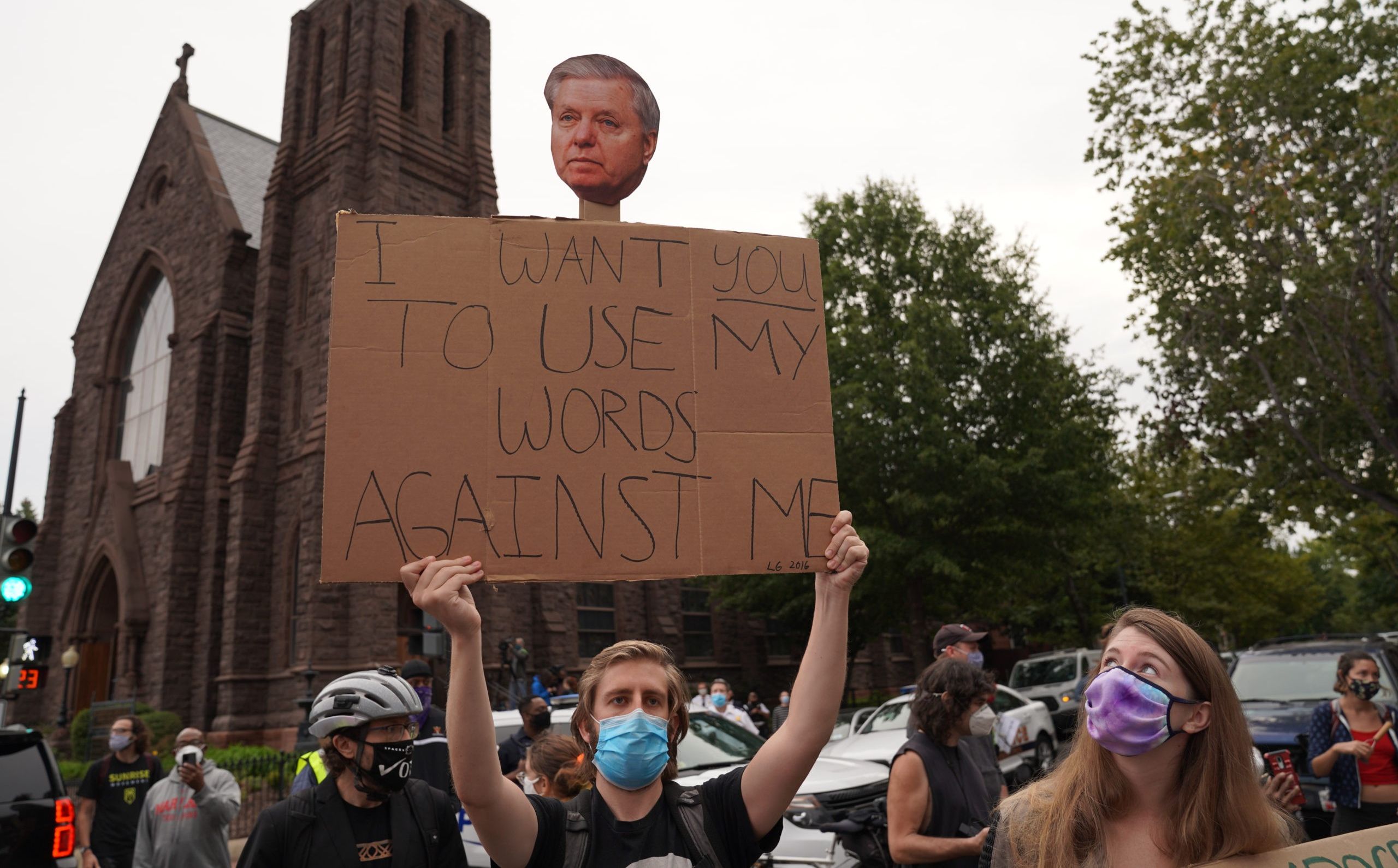Senate Democrats are considering signing on to a letter that critics say is meant to complicate President Biden’s plan to return to the Iran nuclear deal, and is led by a senator who has been calling for war with Iran for more than a decade.
JCPOA proponents warn that the letter — led by Sens. Lindsey Graham (R-S.C.) and Robert Menendez (D-N.J.), and backed by AIPAC — establishes unachievable benchmarks and supports a continuation of President Trump’s failed “maximum pressure” campaign on Iran.
When news of the letter broke last week, pro-diplomacy groups aimed their fire at Menendez, as the letter mirrors an effort he helped lead back in 2014 when he sponsored a bill that would have imposed more sanctions on Iran while talks were ongoing leading up to the JCPOA.
One senior Democratic senator said at the time that Menendez’s bill was meant to “blow up” the talks and promote regime change. Indeed, as the motive for Menendez’s sanctions push then became more apparent, Democratic support for the bill waned.
A similar dynamic is at play with Menendez’s new letter, not just because it echoes past efforts at gumming up the works on diplomacy with Iran, but also because of who he’s teaming up with: Lindsey Graham.
Graham isn’t interested in diplomacy with Iran or reaching any kind of compromise. His position on the issue has always consistently been that Iran either capitulates to every American demand or faces the wrath of the U.S. military.
In fact, Graham said nearly 10 years ago that the time for talking with Iran “is over.” Two years before that, Graham said the United States should go to war if Tehran does not end its nuclear program.
The South Carolina Republican also said then that he didn’t believe U.S. intelligence conclusions that Iran was not building a nuclear weapon (because of the JCPOA, international monitors continue to verify to this day that Iran is not building the bomb). Two years before the Iran nuclear deal was agreed to, Graham pushed Congress for an authorization for war against Iran.
Senator Graham also based his short-lived presidential campaign in 2015 in part on waging war against Iran. And throughout Donald Trump’s time in office, he was a constant voice pushing the president toward military action against the Islamic Republic.
So Graham has clearly shown his cards over the years. Why would he ask his colleagues to sign a letter that doesn’t ultimately set out to achieve his aims?
What’s perhaps even more perplexing is that Democrats are apparently willing to join this effort. According to a source who works close to the Hill on Iran and the nuclear deal, some Democratic senators have said they will sign on to the new Graham-Menendez letter pushing Biden on the JCPOA. Why would they do that knowing what Graham is ultimately after?
















